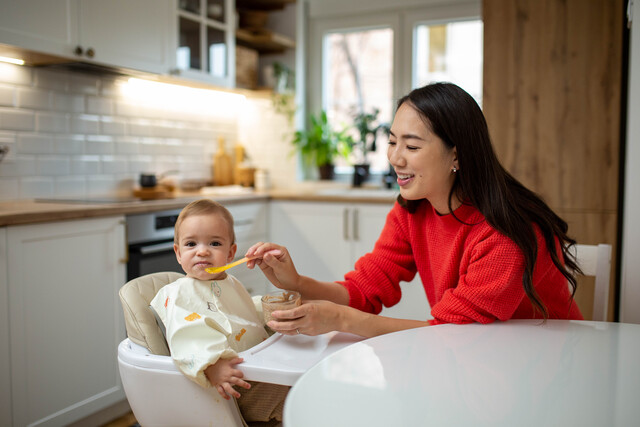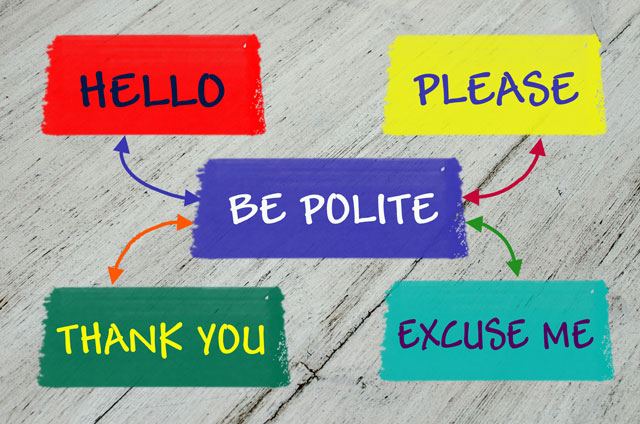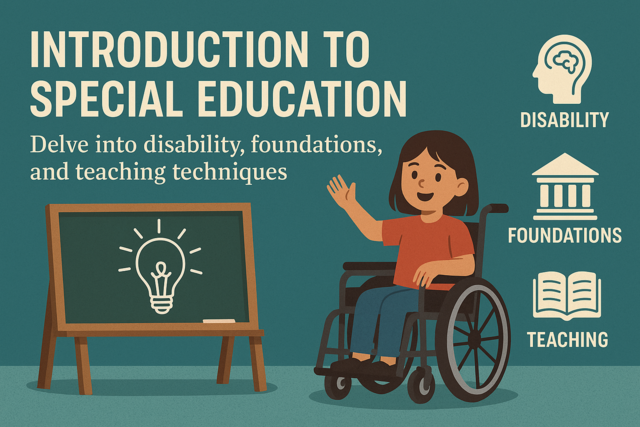Positive parenting is more achievable by planning ahead and being prepared. Setting up for success can make all the difference. In this article, we will cover key areas for parents to work on, including organization and routines, what to ignore, controlling our own emotions and actions, better understanding children's motivations and needs, and guidelines for effective family communication.
Organization and Routines
One of the most fundamental areas to attend to is organization, routines, and rules. This makes for fewer daily hassles, which are the minor irritations of life, and which become more pronounced with children. Research finds daily hassles can hinder or erode a positive parent-child relationship and family atmosphere, because they lead to so many negative exchanges.
Imagine (or remember if it's happened to you) the feelings of irritation, curt words, and hurt feelings that can happen in scenarios like misplaced car keys in the morning rush, your preschooler's favorite shirt he was expecting to wear not having been laundered, your third-grader unable to find glue to finish a project, when you know he has some somewhere, your middle-schooler reminding you she has volleyball practice and needs a ride home, but you didn't put it on the calendar and have a meeting at that time, and the list can go on and on.
Making an effort to get -- and stay -- organized can set you up for positive parenting success, because you aren't spending so much energy on daily hassles like these. Strategies like using calendars and whiteboards, making schedules and lists, and having rules about what goes where and everyone honoring and participating in that is a great first step.
Related is the importance of routines and rules. When children know what is expected, and when, this reduces having to negotiate these each and every day. Additionally, those related to physical well-being -- such as eating balanced meals, going to bed at an appropriate time to get enough sleep, and personal hygiene -- all help children feel better. A child who feels well tends to have better behavior.
Now having said this, there will inevitably be daily hassles and times when routines and rules must be bent -- that's just life. You also don't want to run your home in such a rigid way, your family doesn't feel comfortable.
Don't Sweat the Small Stuff
We might think of daily hassles as the small stuff, but what we're referring to falls outside of organization and routines. The small stuff has to do with aspects of children being children. In other words, typical and therefore to be expected.
Glenn Latham has written extensively on this topic within positive parenting. He advises to ignore what isn't serious, what he calls inconsequential behaviors, and for parents to evaluate what this means. He believes a great many behaviors that annoy parents aren't worth paying attention to. If parents do pick these kinds of behaviors to focus on, it can lead to rifts in the parent-child relationship that aren't necessary. Children can feel resentful if you ride them for normal behavior.
One area that falls into this category is sibling rivalry when brothers and sisters squabble or come to parents complaining. Another is when children try to divert parents following through on a consequence by saying things like "You're mean." "All my friends do it." "You don't trust me." Areas like clothes and hair have been known to become explosive battlegrounds, but these are just kids expressing themselves.
All parents have to evaluate and make decisions about what falls in their "don't sweat the small stuff" bucket, but a good rule of thumb is to ask yourself: Is this behavior truly detrimental, harmful, or dangerous? Is this behavior typical of a normally developing child of this age? If the answer is no to the first and yes to the second, chances are it's a good candidate for being ignored.
This is not to imply discipline and order go out the window. Far from it, these need to be in place for children to reach optimal outcomes, and parents have to be prepared to do it well.
Peace Starts With You: Own Your Feelings and Actions
To practice positive parenting, especially effective positive discipline, means parents have to reflect on, control, and manage their own behavior. When parents are out of control by yelling, belittling, and/or hitting, a huge host of negative stress-related emotions, such as fear and anxiety, are being stirred up in the child.
Some children "fight" by acting out even more. Others take "flight" by shutting down and withdrawing. The ability to guide behavior effectively and positively is practically impossible under these conditions. Not only does the child lose out on learning optimal behaviors, they receive the message they're unloved, a nuisance, and flawed. The accompanying emotions of shame, guilt, and worthlessness take a terrible toll on a child's self-esteem.
It's natural to feel some negative feelings, however if parents are regularly struggling to stay in control, the good news is that change is very possible. A first step is taking ownership of our own feelings. The second is taking action to become peaceful parents. What works varies by parent, but techniques that have been found to be very helpful include:
-
Take a break until you feel more in control. This can be just counting to 10, or it can be leaving the room until you feel calm.
-
Write out what you want to say. This references the power of words. If you find that you get upset when having to talk with your child about difficult issues, try writing out a list of points you want to make, or you could even write a full script. This allows you to get your thoughts together and also ensures you don't make hurtful, unconstructive statements in the heat of the moment.
-
Get healthy. When you are physically fit, rested, and well-nourished it greatly facilitates your mood and stamina. This helps you stay calm and in control when interacting with your children.
-
Learn all you can about parenting and child development. Knowledge is power and this gives you tools when dealing with your kids. One main area is that many parents lack an understanding of what motivates children's behavior, which leads them to blame children and feel their buttons are being pushed.
Understand the Motivation behind Children's Behavior
Many parents are unclear about the motivation behind children's behavior. This is particularly the case with misbehavior. For some parents this sparks the out-of-control behavior mentioned above, while for other parents who are generally more in control, they can still fail at effectively guiding their children's behavior, because they misinterpret the motivation and can't best meet their children's needs.
At its simplest, behavior is used by humans to communicate needs and wants and is how we go about getting those met. These can be physical, emotional, social, and intellectual and many times are tightly interwoven. While how these are displayed changes, depending on their stage of development/age, the motivation behind all children's behavior revolves around getting these needs and wants met. Let's look at how children go about doing so�
Attention
One of the most powerful motivators of children's behavior is seeking attention and they do so because they need to be recognized. They seek attention for physical needs, such as to satisfy hunger and safety. They seek attention for emotional needs, such as love, comfort, and approval. Social needs, which drive attention-seeking, can include assistance on tasks that need cooperation to accomplish, sharing laughter, as well as gaining dominance. Children seek parents' attention for intellectual or mental needs, as well, such as attaining knowledge.
For optimal growth and development, children need, and will demand, a tremendous amount of attention. When they don't get enough or the right kind of attention for the need they currently have, behavioral problems surface. The goal for parents is to interpret the type of attention at issue and to train children to get their needs met in appropriate ways.
This can include learning to wait for mom or dad's attention. Just remember, young children can't wait very long. While they are waiting it's very important not to ignore. Tell your child why they need to wait and for how long. For instance, "I'm on an important call, but I will be off in a few minutes and then we will play," or "I can't take you to the park right now, because I have to fold the laundry first." You can even add, "Here are the towels. You fold those. You're really great at that. Then we'll be able to go even sooner."
Another area to train them in is using words. Many times children will try to get attention behaviorally and in ways that aren't appropriate. For instance, tugging constantly on the parent's clothing or making a mess to get attention. Tell your children this and help them with the words.
Autonomy
While we might think of autonomy as only a need in toddlerhood, based on Erikson's theory, for example, it's actually a motivator for behavior from infancy through adolescence. The optimal end goal for a child is to become an adult who functions in a healthy manner. This means they're able to be independent and self-sufficient.
This doesn't mean not wanting or needing others. Autonomy isn't about isolation. It's about being able to be an active, contributing member of one's society. To get to this point takes autonomy. Autonomy means making self-selected and self-directed choices that have to do with one's own behavior.
Beginning in infancy, children are highly motivated to start mastering the skills needed to be autonomous. We see this in how much dedication they show toward getting mobile. This allows them to really start exploring their environment and they get into just about everything. Toddlers say no, and insist on doing more and more for themselves, not because they are being difficult, but because of the motivation for autonomy. Preschoolers seem bossy, but are actually showing personal assertiveness, which is a fundamental aspect of being independent and autonomous.
In middle childhood, children start to protest when they think parents are too intrusive, insisting they aren't "babies." Tweens want more freedom in selecting friends, or what time to go to bed, for instance; these are all attempts at autonomy. In the teen years, autonomy shows most in self-managing school and in being allowed to spend more time away from home with peers. As you can imagine from these examples, many parents consider these misbehavior. but when parents don't allow reasonable autonomy, children can really begin to act out.
Setting up for success means being ready and open to your child's efforts at autonomy. Knowing how this changes as they develop will allow you to see there is a theme, and you'll know the motivation behind their actions.
Sensory Stimulation
Another strong motivator of children's behavior is to get stimulation, mainly through their senses and bodies. Children interact with the world to a great degree through their bodies. This is vital for optimal growth and development. It's how they master using their bodies to do all the things it needs to do in the physical environment, how they learn how objects behave and their impact on them, and because it just feels good!
When children want to move, to explore, and to experience new sensations they are motivated by the need for sensory stimulation. This need is seen from infancy through adolescence. It takes this long for children to fully become competent physically and for the need for sensory stimulation to balance with mental stimulation. When kids don't get enough sensory stimulation, they don't grow and develop as well physically. Most will look for ways to get it that are inappropriate -- like swinging on a gate at an airport or running in the grocery store.
Observe your child closely and when you see they need stimulation, provide an environment that gives them that. Get them outside and moving. If the weather isn't nice, find ways inside to meet this need. This could be playing Wii, hide and seek, or jumping jacks and running in place; you can even time them to see how long they can do it. And while it may be tempting to say, "Go play!" take time to regularly join them. It's a powerful way to connect and they'll love it and you'll feel better, too!
Avoidance
Children, however, can only take so much action and interaction. Their behavior is also motivated by the need to avoid when they are overstimulated and overwhelmed. Infants close their eyes, turn their heads away, or simply go to sleep. Toddlers and preschoolers have difficulty pushing their �stop button' and will instead whine, find everything unsuitable, or tantrum. Older children and teens will want to stay in their room, procrastinate, criticize that something is "dumb," complain of feeling poorly, or sleep more than usual.
Avoidance is also seen when children have failed and feel embarrassed. Children may refuse eye contact, won't answer when spoken to, want to stay in their room, or declare they no longer want to participate in an activity.
When parents don't acknowledge and respect children's behaviors related to their need to avoid, they undermine their children's ability to decompress, process, recover, and relax. When your child needs to decompress, having already structured the environment for this makes it easier for them. Make a place for relaxing, either in their room or in a quiet part of the house. Teach them yoga. Be okay with them doing nothing for a while. Sometimes parents push children to always be doing something they consider "constructive" and this can be exhausting and frustrating for a child.
The Power of Playing Together
Much of how children learn about and master the world is through play. In fact, the evidence is so strong that play supports optimal child development, it is recognized as a right of every child by the United Nations. Additionally, through play the parent-child relationship can be strengthened. In many ways however, unstructured play is being threatened. Families are busier than ever, children are in more organized activities, and everyone spends more time passively in front of screens.
To set up for success in positive parenting, use play to make genuine connections with children. Parents sometimes have the tendency to offer toys and ideas to the child at rapid speed. Instead, take your cue from your child and go at his pace; this is called child-directed play. Provide more toys that call on the child to use his/her imagination, rather than ones that are highly automated. A rule of thumb is that if a toy needs a battery or a power cord, parents should evaluate just how much the child can really put their own stamp on playing with it.
Remember, too, the benefits of play aren't just for young children. While how this looks is different, tweens and teens need play, too. When parents play together with children, they get an excellent opportunity to connect with their child, get to really know them, and more than anything get a chance to enjoy them.
Support Who Your Child Is and Will Be
Wendy Williams and Robert Sternberg offer lessons for parents on how they can maximize children's potential. Let's take a look at some highlights.
They recommend parents do all they can (within reason) to discover what most excites their child. The reason this is so important is that when a child is deeply interested in something, they are motivated to learn and master all they can about it. To discover this means exposing children to a wide variety of experiences.
There are a number of important issues to consider and be aware of as you go through this process. The interests or natural tendencies your child has may or may not be the same as yours. When exposing children to experiences, these can be those the parent is interested in and should also be those the parent does not gravitate toward.
For instance, let's say you love to play chess and want your child to as well; maybe you even having visions of her winning chess tournaments, so you spend time teaching her the game. On the flip side, perhaps you're intimidated by horses, but your son is really drawn to riding. Even though you yourself could never imagine enjoying this activity, you still sign him up for lessons. If your children don't like what you do or like what you don't, it will be an exercise in openness to getting to know, accept, and support them.
Then there is the issue that has caused many battles between parents and children -- when kids want to quit an activity. They may have been very enthusiastic in the beginning and then, when they lose this enthusiasm, it can be perplexing and frustrating to parents. Parents may be concerned their child is a "quitter" and additionally they themselves may be embarrassed or may have invested substantial resources like time and money.
One simply can't always predict because the whole point is children are learning about themselves and what they like and don't like. Without opportunities to do this somewhat freely this process is short-changed. That said, rather than dive headfirst into a new activity, consider having your child do it for a trial period. This could be taking a few classes or a camp or being on a team for a season.
Build Family Solidarity
When the family has solidarity, there is cooperation, agreement, harmony, and close and loving relationships. This greatly supports positive parenting. Getting to this level of family closeness and effective functioning takes work for most of us. We have to face and deal with conflict that could come from differences in opinions, goals, problem-solving skills, as well as stressors -- such as money or illness.
Family meetings are a great way to promote solidarity and positive parenting. Constructive communication is the key. The American Academy of Pediatrics offers the following guidelines.
-
Parents are the discussion leaders. They also have final say in important decisions, because of their maturity.
-
The needs of each family member and the family as a whole are emphasized.
-
Each member is allowed to speak. They should not be criticized or interrupted. However, it's not a place to rant.
-
Don't use the meeting to dole out consequences for misbehavior. Rather, do that separately.
-
The family can talk about difficult issues, but it's best to focus on the positive.
Summary
Being organized and having routines, making conscious decisions about what behaviors in your children you can ignore, being in control of your own emotions and actions, better understanding children's motivations and needs, and committing to healthy family communication will give you a head start and set you up for positive parenting success.






























